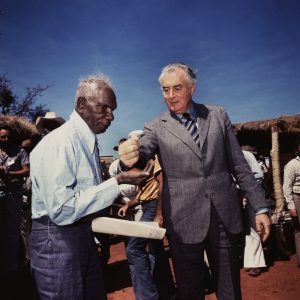Top 5 Facts about Lincoln
 Steven Spielberg’s new historical movie epic ‘Lincoln’ aims to visually represent the political struggles of U.S President Abraham Lincoln. Lincoln’s political endeavour to pass the 13th amendment into the American Constitution and abolish slavery forms the main focal point for the movies plot. America in the 1800’s was a country divided. Civil War is on the brink of destroying the country and the task falls to Lincoln to repair the damage and reunite his countrymen.
Steven Spielberg’s new historical movie epic ‘Lincoln’ aims to visually represent the political struggles of U.S President Abraham Lincoln. Lincoln’s political endeavour to pass the 13th amendment into the American Constitution and abolish slavery forms the main focal point for the movies plot. America in the 1800’s was a country divided. Civil War is on the brink of destroying the country and the task falls to Lincoln to repair the damage and reunite his countrymen.
Before you head to the cinema to see ‘Lincoln’ there are a few pieces of information that you will need to know to fully appreciate the movie. Luckily for you I have done the research and found the vital points. So here they are, five facts about Abraham Lincoln you need to know before seeing ‘Lincoln’ the movie.
1. Four score and seven years ago….
President Lincoln had a particular tendency towards making grand, dramatic speeches even it seems when they weren’t necessary. So gifted in the art of rhetoric was Lincoln that some of his more popular addresses are to this day, 150 years on, still remembered and form part of modern culture.
The film interestingly avoids the most famous of Lincoln’s speeches, the Gettysburg Address, only mentioning it briefly in the film’s early stages. You all know the speech; four score and seven years ago etc. if the address is such a large part of Lincoln’s legacy then why not give it the attention it deserves? The best answer I could come up with is that the film is simply trying to avoid being obvious and cliché in its portrayal of Lincoln.
Actor Daniel Day-Lewis is the man given the monumental task of portraying Lincoln and by all accounts does an amazing job of reflecting the passion and drive most associated with the former president.
2. Abolish Slavery
In case you didn’t already know this, Abraham Lincoln was largely responsible for the eradication of slavery in the United States. Lincoln’s 13th amendment to the American Constitution to abolish slavery is perhaps the single most important civil rights movement in American history. The amendment certainly did not pass through parliament unanimously. Politicians from both sides of the civil war initially opposed the amendment and it took a lot of crafty convincing, bribes and occasionally bullying to get it passed.
The political strategy and persuasion involved in passing the 13th amendment is the film’s main focal point. ‘Lincoln’ aims to visualize the hardships of the American Civil War, the close-mindedness of the people in that era and also the revolutionary forward thinking and political nous of Lincoln and his followers.
An astonishing piece of trivia that is almost beyond belief arose from the release of the film in that until February of 2013 the state of Mississippi had not officially acknowledged the 13th amendment. After seeing the film Dr Ranjan Batra did some research and found that a clerical oversight had meant that the vote had remained officially unacknowledged. On February 7th 2013, 150 years after the events of ‘Lincoln’, the state of Mississippi had finally ratified the 13th amendment into the constitution of the United States.
3. Politics in the 1800s were Bizarre
Modern political strategy can be strange, mean-spirited and often immature but, it pales in comparison to the bizarre tactics employed by politicians in the 1800’s.
It was a tense time in American political history yet, according to the movie it seems that even the most important debates could be settled by a well timed insult. It appears that calling a member of parliament a “nincompoop” was enough to turn the tide of a heated political argument.
As strange as this name-calling seems, the political strategy gets even more outlandish. A propaganda pamphlet released in 1864 entitled “Abraham Africanus I: his secret life, revealed under the mesmeric influence; mysteries of the White House.” A political group called the “Copperheads”, who were sympathetic to the confederate cause, distributed this pamphlet. The pamphlet made such outlandish claims towards Lincoln, saying that he had signed a contract with Satan for the U.S presidency for life and that he aims to undermine the people of America using sly tactics of scheming and trickery.
Stuff like this doesn’t make today’s politicians seem so bad does it?
4. Family Troubles
Abraham Lincoln’s family life was in stark contrast to the calm, strong and united front that was portrayed to the general public. Abraham, his wife Mary and their four children suffered many hardships. Three of Lincolns four children died as result of illness before they reached adulthood. Edward and Thomas died as a result of tuberculosis while William most likely passed away as a result of typhoid fever.
At the loss of her young sons, Lincoln’s wife Mary fell into a state of deep depression from which she never truly recovered. Mary had a fierce temper; intense mood swings and often made very public outbursts that have lead many historians to believe that she suffered from bipolar disorder. Her condition eventually became so dire that it caused her son Robert to commit her to a mental health asylum.
5. Assassination
Abraham Lincoln was assassinated. A pleasant, stress relieving trip to the theatre ended in tragedy. The president, his wife and many other dignitaries were seated in the presidents balcony box at the popular Ford Theatre. John Wilkes Booth snuck into the booth behind Lincoln and shot him in the back of the head. .
John Wilkes Booth was at the time quite a popular stage actor who had performed many times at the Ford Theatre and was a trusted friend of the Ford family who owned the theatre, thus he was allowed access to all areas of the theatre. After dealing the telling blow, John Wilkes Booth took centre stage of the theatre and exclaimed “Sic semper tyrannis” which is Latin for “Thus always to tyrants”. With these words the ever theatrical Booth paid homage to the famous assassination of Caesar at the hands of Brutus.
The murder of President Lincoln at the hands of John Wilkes Booth remains one of the most high profile assassinations of all time.
So there you have it, five important bits of information about the revolutionary life of Abraham Lincoln. Now that you know the facts you are ready to go out and fully appreciate the historical epic that is Steven Spielberg’s ‘Lincoln’.



Be the first to comment!